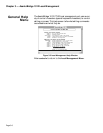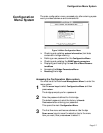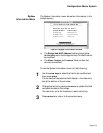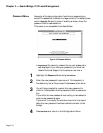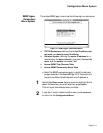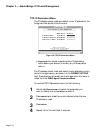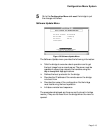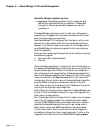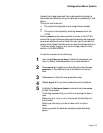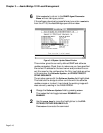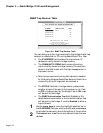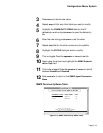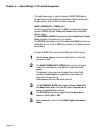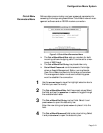
Page 3-14
Chapter 3 — AsantéBridge 1012 Local Management
About the Software Update function
❖ Important: The software update function is complex and
should be understood before you attempt it. Please read
through the following description
before you use this
command.
❖
The AsantéBridge uses this function to load new configuration
parameters and image files from a server somewhere on the net-
work that the bridge is connected to.
Each AsantéBridge 1012 is shipped from the factory with a com-
plete set of image code for both the hub and bridge residing in
memory. If you need to load a new version of this image code to
your AsantéBridge, the software upgrade function provides you
with this capability.
There are two transfer applications that can be used for executing
the software upgrade:
❏ bootp plus tftp (recommended)
❏ tftp only
Using the bootp application in conjunction with the tftp applica-
tion causes the AsantéBridge to look for any server on the net run-
ning the bootp application. When it finds one, it will establish a
link to that server and request that an IP address be assigned to it.
After the IP address is assigned, the bridge will look for the config-
uration file named in the
boot file name field. It will read in the
configuration file to find the name of the AsantéBridge image file,
plus any SNMP configuration parameters that are in the file.
If tftp alone is used, you must specify the IP address of the server
carrying the configuration and image files.
After finding out the name of the image file, the AsantéBridge uses
the tftp (Trivial File Transfer Protocol) to copy the image file to a
buffer area in bridge memory.
Next, the bridge checks the image files for integrity and complete-
ness. If the file check is passed, the image files are then loaded
into the FLASH EPROM memory and a reset command is issued,
resetting the AsantéBridge and placing the new image code in
effect as well as any new SNMP parameters that were loaded.
If there is any kind of a failure, such as a corrupted image file,
incomplete configuration file, or most commonly, if either of the
image files cannot be found, the FLASH EPROM is
not updated.



